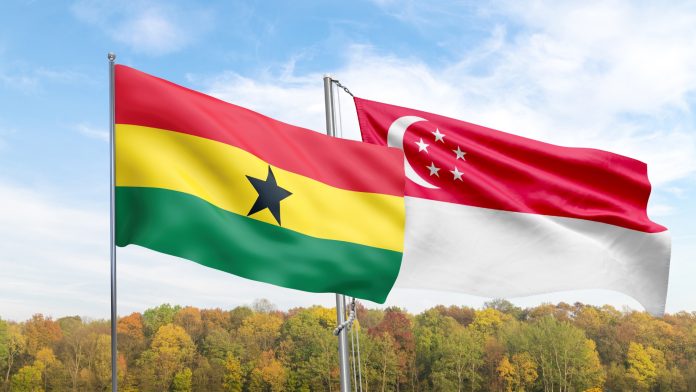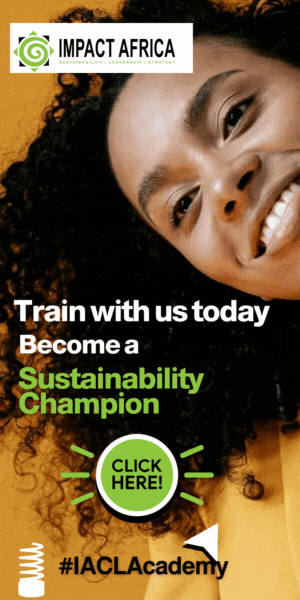Ghana and Singapore have signed a pioneering carbon credit agreement that links climate finance with industrial development, marking the first such partnership between an African and an Asian nation. The accord, anchored in the Paris Agreement’s Article 6 framework, aims to channel investment into low-carbon projects while supporting Ghana’s strategy to move beyond exporting raw commodities and toward processing, value addition, and broader economic diversification.
The deal was concluded during bilateral discussions in Singapore, where leaders from both nations emphasized aligning climate objectives with practical development outcomes. Singapore, which has introduced a steadily rising carbon tax, is seeking dependable supplies of credits to help its companies comply with the law. Ghana, in turn, is positioning itself as a host country where carbon finance supports projects that generate employment and strengthen climate resilience.
Read also: Ecomondo 2025 links Europe and Africa in push for circular economy solutions
For President John Mahama, the agreement sits squarely within Ghana’s “Reset Agenda.” Agriculture, still central to livelihoods and employment, is being reframed as a platform for industrial expansion. The government’s Volta Economic Corridor, encompassing millions of hectares of irrigable land, is intended as a base for agro-industrial parks and processing facilities. By directing capital from carbon markets into these ventures, Mahama argued, Ghana can build a job-rich economy while advancing environmental goals.
Singaporean President Tharman Shanmugaratnam emphasized complementary interests, pointing to Ghana’s cocoa and cashew sectors. Both commodities have long been exported raw, with most of the economic value captured abroad. By investing in downstream processing and modern agribusiness, Singapore sees opportunities not only for trade but also for creating more balanced economic ties with African partners.
This bilateral deal is part of a broader recalibration of carbon markets. Over the past two years, Africa has attracted growing interest from governments and private companies seeking high-quality carbon credits. Rwanda has reached similar arrangements with Singapore, while Kenya and Nigeria are exploring voluntary market mechanisms as tools for mobilizing finance. What makes Ghana’s agreement distinctive is its integration into Singapore’s compliance market: credits issued under this deal will not be speculative offsets but legally recognized instruments tied to a national carbon tax regime.
This development resonates directly with the upcoming Carbon Markets Africa Summit (CMAS) 2025, scheduled for 21‑23 October in Johannesburg. The summit, themed “Scaling carbon markets for Africa’s sustainable growth amid a shifting global landscape,” convenes investors, regulators, project developers, and standards bodies to explore how carbon finance can drive credible, inclusive, and scalable outcomes across the continent. The Ghana‑Singapore agreement is expected to feature as a case study, illustrating how bilateral commitments can anchor investment, link offsets to industrial and agribusiness opportunities, and generate tangible employment. For delegates, it offers a lens through which to evaluate what works in practice, what challenges arise, and how to structure future deals that genuinely serve local communities as well as international compliance markets.
Read also: Google and Vaulted Deep’s methane experiment signals new pathways for Africa’s waste crisis
At the same time, the deal exposes the tensions inherent in using carbon markets as development tools. Credits must be verified against international standards, emissions reductions must be permanent, and the process must avoid double counting. Carbon credit projects have historically faced criticism for weak verification, inflated claims, or insufficient benefits for communities directly affected. In some instances, land-use projects have inadvertently restricted local access to critical resources, prompting disputes and undermining trust. Ghana’s challenge will be to implement robust monitoring and reporting systems and ensure that communities capture a fair share of the benefits.
Market volatility adds another layer of complexity. While Singapore’s tax-linked demand offers more predictability than voluntary markets, Africa’s broader carbon market remains unsettled. Standards are evolving, buyers remain cautious, and the long-term price trajectory for credits is uncertain. Ghana will need to ensure that projects can withstand these dynamics while remaining attractive to investors.
If successfully executed, the Ghana-Singapore model could reshape perceptions of Africa’s role in global carbon finance. It demonstrates the possibility of tying climate action directly to industrial and employment outcomes, moving beyond a model where offsets are treated as abstract instruments for distant regulators or investors. Agro-processing, modernized supply chains, and renewable energy projects could capture more local value, stabilize incomes, and reduce vulnerability to global commodity fluctuations.
The implications extend regionally. Ghana’s initiatives could intersect with AfCFTA frameworks, linking carbon-backed agro-industrial development with broader intra-African trade corridors. If replicated, such models could promote industrial diversification while reinforcing Africa’s contribution to global emissions reductions. The key determinant will be governance: enforcing safeguards, protecting rights, and ensuring transparency at every stage of project design and implementation.
Beyond the technical and economic dimensions, the agreement highlights the intersection of climate and social outcomes. Jobs created through agro-processing and digital services may absorb young entrants to the workforce, while downstream processing reduces dependency on raw commodity exports. Forest conservation and reforestation, when combined with livelihood strategies, could reinforce resilience in rural areas. Conversely, failure to safeguard these mechanisms risks repeating the familiar pattern of externalized benefits, where investment flows out and communities remain on the margins.
The Ghana-Singapore partnership, therefore, represents both opportunity and trial. Its success will be measured not only in the volume of carbon credits transacted but also in tangible local impact: secure livelihoods, equitable benefit sharing, and the creation of industrial capacity that is resilient and sustainable. As Africa’s carbon market evolves, this experiment may serve as a benchmark, demonstrating how international climate finance can support development objectives while adhering to rigorous environmental standards.






